Twitching is the body's defense mechanism that keeps you from the feeling of falling off the bed. But all these have their causes such as stress, dehydration, substance abuse, medication etc.
Does everybody indeed enjoy sleep? Having a peaceful night is most people's desires, but this can always be like a nightmare to some people.
Interrupting periods of sleep have their causes, with each cause varying from person to person. The interruptions result from either suffering from a disease, stress, or evil occurrences.
Twitching in your sleep is not different because it also causes sleep interruptions with the body, reacting to some underlying causes.
Most people have experienced twitching either once in their sleep. This happens when the body muscles move when you are sleeping. The muscle movements are associated with the body's adjustments from being awake to sleeping.
To understand why people twitch in their sleep, we will look at the causes and symptoms of twitching, which is an everyday occurrence in our lives.
The symptoms that are likely to accompany twitching while you are sleeping will include feeling as if you want to fall. Your heartbeat will increase with your breathing rate increasing unexpectedly.
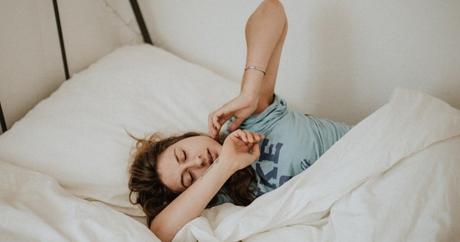
You will also be sweating and having a dream that you are falling which can even cause a fall. All these can make you wake up with confusion and shame. Knowing that those around saw you falling or heard you dreaming.
Causes of Twitching in Sleep
When you have stressed before sleeping because of getting asleep, you might experience twitching. This happens either in the eye or in any body part. If the stress levels go high, the twitching worsens, but it reduces when the anxiety level goes down.
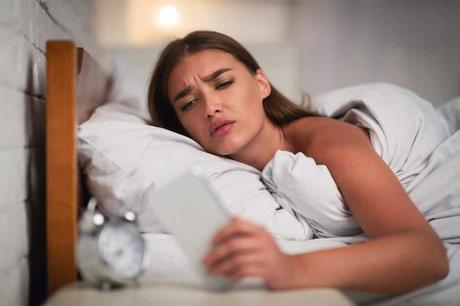
Twitching when you are anxious happens because the body releases neurotransmitters. The transmitters then send messages to the nerve cells' muscles, making the body ready to fight the incoming danger. Still, there's no reason for the release because the body cannot fight stress.
Also, anxiety makes a person breathing be fast and rapid. This makes them hyperventilate, making you inhale less gas but release a lot of gases. When this happens, the body will have less carbon dioxide.
If you have less carbon dioxide supply in the body, the blood vessels narrow, resulting in less blood supply to the brain. The lack of enough blood in the brain will make your head feel light with the fingers tingling.
Although hyperventilation is not common, it does happen to those with chronic stress, anxiety, and anger.
In case you have constant and regular twitching because of being anxious, see a doctor who will look at your medical and probe further to understand when it started or how it happens.
They can also run different tests such as a nerve conduction test or CT scan in the brain to understand it better.
To help you stop experiencing anxiety twitching, eat a balanced diet, drink a lot of water, and avoid stressing yourself.
Sleep is good for your health, but having less or too much sleep can cause you harm. The body will be protesting for not having enough sleep by experiencing symptoms like twitching.
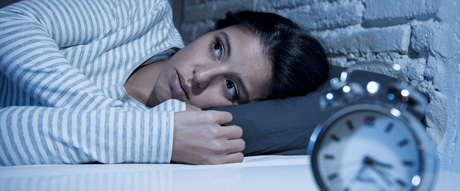
When it is time to sleep, the brain chemicals sends messages to the body that it is time to sleep. You find yourself sleeping because you have no control over the substances.
Normally when your body gets an eight-hour sleep daily, then you change it to four hours; the brain chemicals will have difficulty adjusting to your new sleeping pattern.
Your nerves tend to inform your muscle that it is time to relax, and the brain marks the sleep pattern. So when you have less sleeping hours, the nerves will have to change how they work. The change will come in because sending the signals to stop so that excess brain chemicals will build up in the brain.
Lack of enough sleep results in a build-up of neurotransmitters will make you have cramps while sleeping.
Related, How Much Deep Sleep Do you Need?
For your muscles to twitch after exercising is not a new occurrence. But doing thorough exercise will increase the chances of it happening because you get tired and weak afterward.
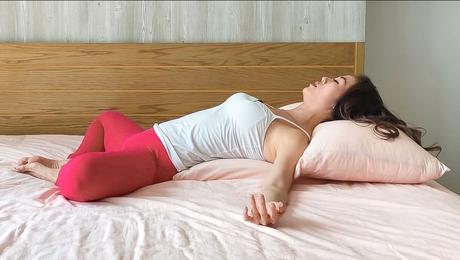
Usually, when you exercise, you sweat and lose body nutrients essential in providing energy. When you lose nutrients such as magnesium or calcium, chances of twitches increase.
If you exercise, there are body parts that are always under pressure like the thighs, calves, or biceps. These are the same places where you will experience twitching.
Twitching can also come from having lactic acid on the muscles as you exercise. This is because the energy that the body uses while exercising comes from the stored oxygen which is used to convert glucose.
When the oxygen necessary for energy conversion reduces, lactate, which is convertible into energy with no oxygen, will come out.
Production of lactic acid usually is faster, but it takes time for the body to use it, resulting in pain and twitching of the muscles.
The human body has a limit to everything it takes in, and there's no exception to alcohol and caffeine. If you drink too much caffeine or alcohol, it will react in detest by either sending a sign such as twitching.
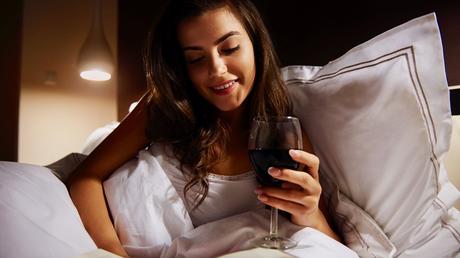
Caffeine, which is a stimulant, can cause pressure in the body muscle tissue when you take them in excess. High consumption of caffeine will make you feel dehydrated because it will continuously make you urinate; hence, losing fluids in the body.
If you have fewer fluids in the body, your blood supply also reduces. This will make you experience twitching as you sleep.
With alcohol, which is a diuretic when taken in large amounts, your body's ability to hold in fluids will be affected, making you dehydrated. Given that fluids have a better percentage of body components; it will affect how the body performs. The body will react through different means, such as muscle cramps.
Also, both alcohol and caffeine can block the intake of electrolytes and essential nutrients like vitamin D, which are necessary to prevent muscle twitching. So, if you consume them in significant portions, the effects will be diverse.
Usually, the body uses fluids for its proper functioning. When you don't take enough fluids; some body's functions will reduce because fluids vanish from the body through processes like sweating.
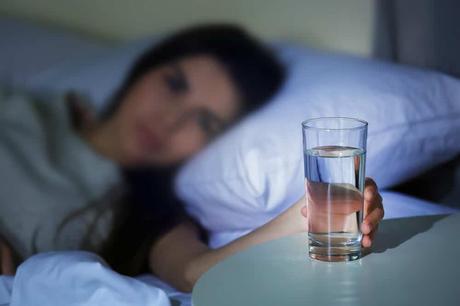
When you don't replace the lost fluids regularly, the body will have less blood flow. This will make the performance of the muscles also reduce hence lead to disruption of muscle functions.
If your body muscles cannot perform their normal functions like contraction and relaxation, it will have to react. This will lead to you having twitches.
It's also essential to understand that through sweating or even vomiting, the body gets to lose electrolytes and body nutrients.
These essential components are lacking in your body because you are dehydrated. Chances of experiencing twitching while you are asleep will be high with a lack of these essential nutrients.
If you have some diseases like diabetes or high blood pressure, you need to control their effects on the body. Using different prescribed medicines or antidepressants work well. But all these medicines come with side effects.
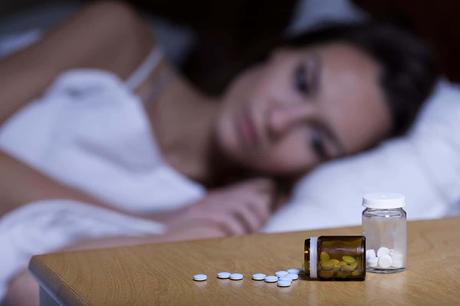
Using antidepressant drugs, for example, will increase your body's stimulation level, which will result in involuntary muscle contraction.
If you are on blood pressure medications, they will interfere with your electrolyte composition. If your body's electrolytes reduce, chances of twitching also increase.
If you realize that the medicines you are using affect you, book an appointment with your doctor to see if you can change them.
Having an unhealthy diet which will not add value to your body but instead harm it is dangerous in an individual's lifestyle. A healthy diet should give your system more electrolytes. This will, in turn, build your muscles, which will make them perform well.

If you have less calcium in the body, your muscles' ability to contract and send signals through the nerves will become ineffective. The inability comes in because the body relies on calcium for proper muscle functioning.
If you lack this, the muscles will twitch in response. To have enough calcium for your muscles, eat nuts, dairy products, or green vegetables.
Magnesium helps to keep the muscles and nerves healthy. It works together with calcium to eradicate the cramping and twitching of the muscles. If you don't include foods rich in magnesium in your diet, they will not protect you from this.
Also, a lack of potassium in your food or drinks will bring change in muscle functioning and results in effects like twitching. This is because potassium helps the nerves send messages and contraction of the muscles.
When you have vitamin D deficiency, your bones will be weak. Weak bones result in weak muscles. With weak muscles, your chances of experiencing cramps around the body are very high.
Vitamin D is essential in the absorption of calcium, and you already know how adequate calcium is for your muscles.
Also, vitamin D helps the nerves that are neurotransmitters signal messages from the muscle to the brain. If this doesn't happen because of deficiency, you will experience cramps as you sleep.
You are likely to have twitching while sleeping because you suffer from a severe medical condition such as lupus, Isaacs' syndrome, or Amyotrophic Lateral Sclerosis(ALS).
When you have ALS, the functioning of your nerve cell will worsen with time.
When this happens, the nerve cells' ability to control the mobility of the muscles is affected. This will lead to weak and under-performing muscles that will twitch while you sleep. If this condition is not well managed, it will permanently affect how you walk and talk.
Another disease that can make you twitch is the Isaacs' Syndrome, which comes about when you have a nerve fiber overactive at the edges. When the nerve fibers overreact, the body's muscles will also be overactive, causing the muscles to contract when doing nothing.
Having this disease, you will also experience other symptoms like being sweaty. All these will make you dehydrated. And as we have seen earlier, dehydration causes muscle twitching.
You will also have cramps, stiff muscles that are hard to relax, giving you a sleepless night.
Lupus, which is not a common disease, can also make you have a night full of twitches. Your body will attack tissues that are in perfect shape, causing swelling in the muscles.
When your muscles swell, they will send you a signal through twitching. Rush to the doctor for help in case you're experiencing any of these symptoms.
Cigarettes contain nicotine, which is a strong stimulant. When nicotine comes into contact with neurons that sends messages to the muscles, it will stimulate them, making them overactive.
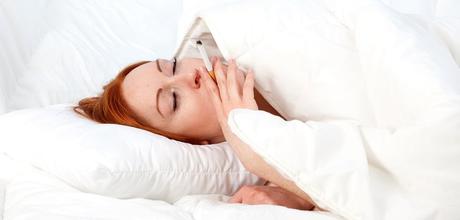
Suppose the body muscles are overactive while you are sleeping the body will react in response. In that case, the neurotransmitters will build up in the brain, causing the twitching. Because smoking is addictive, you will be smoking regularly.
Smoking continuously means its effects on the body will not go away. That means you will live with constant twitches in your life.
To help you stop smoking, you can see a doctor who will advise you on how to stop using tobacco.
Conclusion
It's advisable to look into your daily fluid intake to help in staying hydrated. Always try and have adequate sleep with less change in your sleep pattern to avoid twitching while sleeping.
Know how to handle your stress and anxiety levels. Do exercises that are not demanding, and reduce your alcohol and caffeine intake.
Ensure that your smoking reduces with the inclusion of healthy and vital electrolytes in your diet. Make sure that a doctor prescribes the medications you use to manage some of the lifestyle diseases like blood pressure.
When you do all these, your chances of having a peaceful and interrupted sleep will reduce, and some of the embarrassing scenes from twitching will stop.
Read more,

